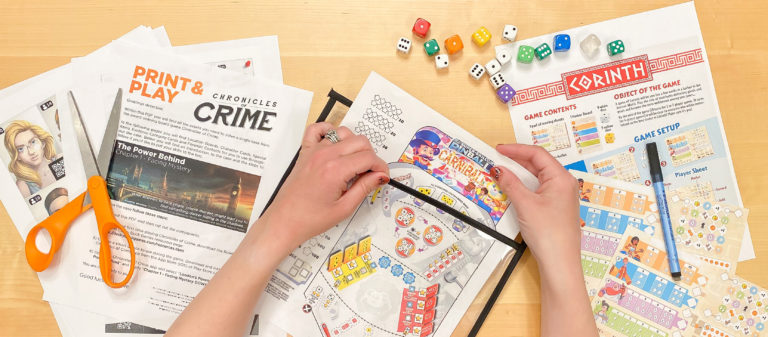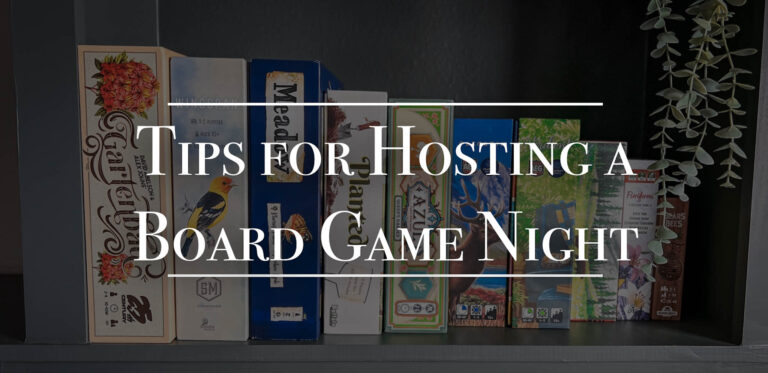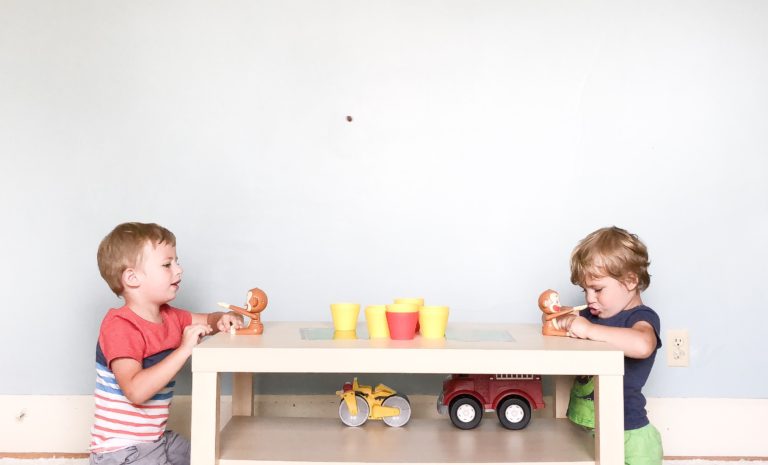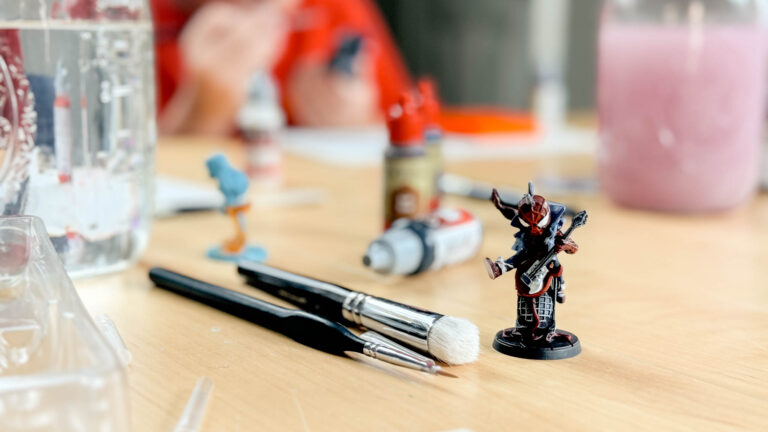There’s no way around it — losing a game can be tough. Whether it’s sports, school, or a board game, no one likes putting in effort only to come up short. It’s completely natural to want to win — and just as natural to feel disappointed when you don’t.
While anyone can struggle with losing, kids especially can have a hard time managing those big emotions. Over the years, we’ve learned a few strategies that have helped our own kids (and plenty of others) handle losing with more grace and confidence.
There’s no one-size-fits-all solution, but we hope you’ll find a few ideas here that make it easier to turn those tough moments into opportunities for growth — and help your young gamers build healthy, resilient attitudes around competition.
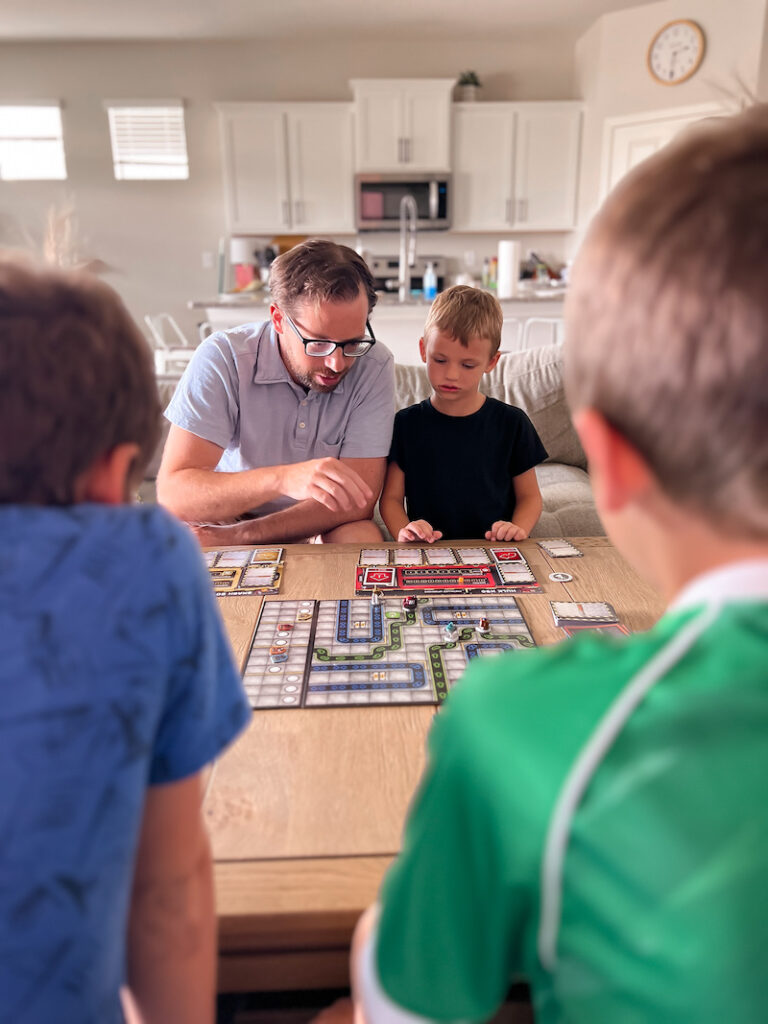
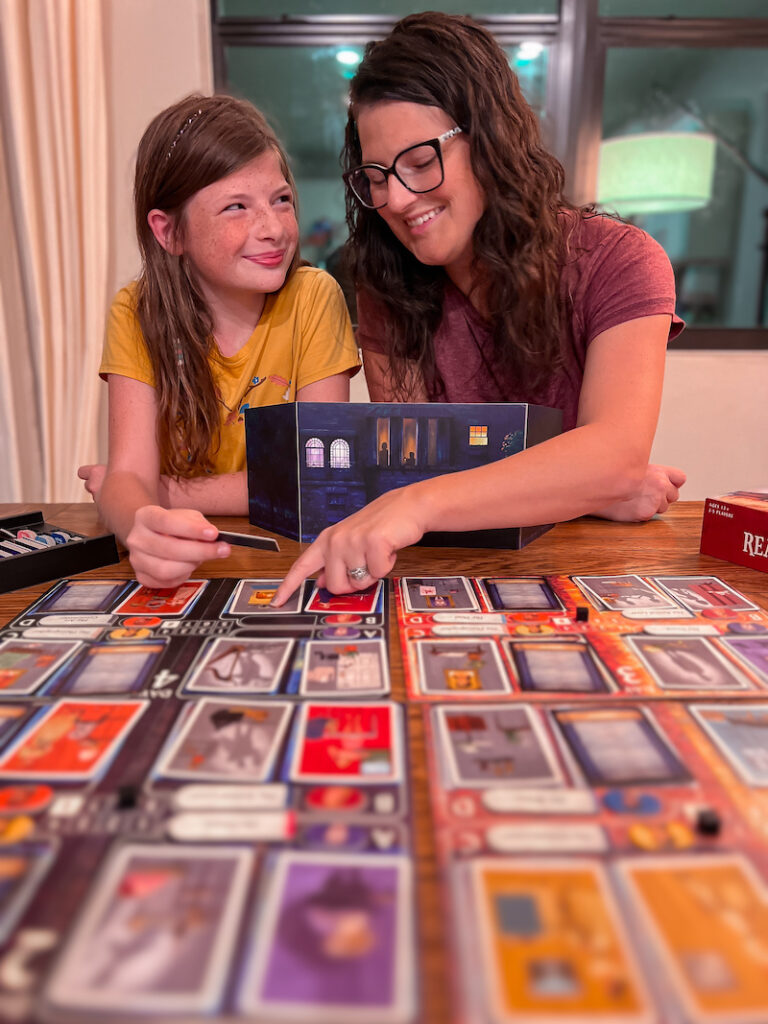
Before Playing:
1. Manage Your Expectations
Whenever talking about kids, I like to start here. Sometimes the biggest issue standing in my way as a parent is expecting my kids to have reasonable, emotionally mature reactions.
It’s completely human to not like losing and sometimes emotions are going to run hot. If your game includes a moment of tears, a meltdown, or cries of “I’m not playing anymore!” know that it’s normal for kids to struggle.
I’ve also found that my outwardly visible frustrations can negatively impact the issue. Make sure to give yourself a little pep talk before playing so that if someone experiences big emotions, you’ll be ready to help them kindly.
2. Set Them up for Success
Make sure that everyone is in the right headspace prior to playing. If people are overly tired or maybe you don’t feel well equipped to deal with big emotions should they happen, it’s best to wait to play.
Also avoid choosing games that are too complex or high stress for their current skill level. Many classic games marketed towards kids and families are designed to frustrate you. Choosing the right kind of game can make all the difference between losing with a meltdown and losing with a “let’s play again” attitude. I have a list of the types of games to avoid and the ones that help make losing easier in this post.
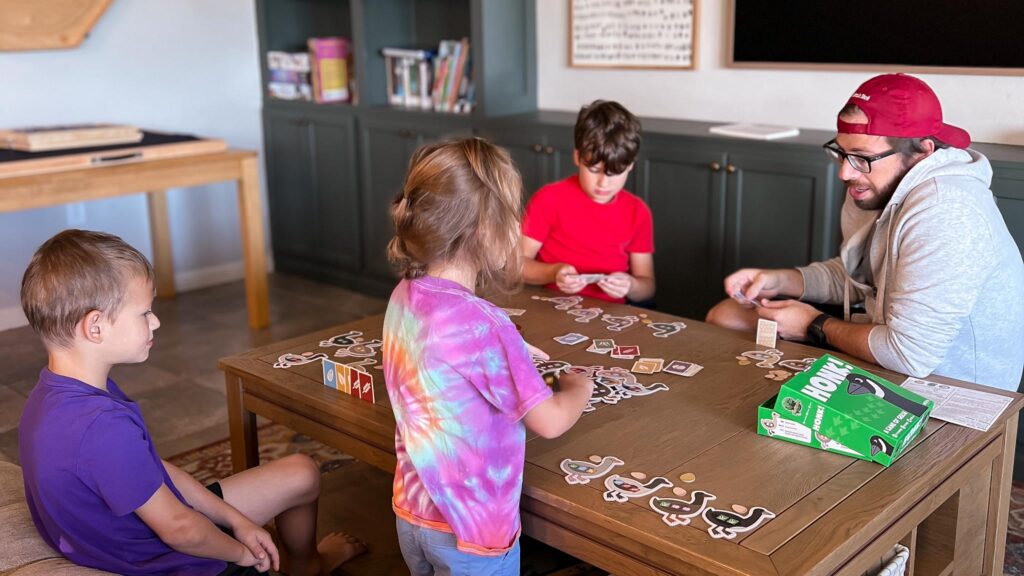
During the Game:
3. Focus on the Whole Game, Not Just the End Result.
I try to put more focus on the effort that my kids are putting into the game rather than just the end result.
This looks like commenting on things they’re doing well during the game.
“Great move there!”
“You really thought through your turn.”
“Thank you for dealing out the cards — that’s a big help!”
“You improved your score from last game! Nice work!”
I don’t go overboard, but sometimes these little notes of in-game encouragement and acknowledgment do the most good for our more tender players.
4. Provide Opportunities to Lose with Quick Games
I cannot stress this tip enough. No one has ever learned a skill without first a lot practice. Providing your kids with opportunities to lose will be the best thing you can do in the long run.
If the thought of dealing with the negative behavior has you running the other way, try this:Play fast games that take mere minutes start to finish.
This lowers their overall investment in the game’s result, doesn’t give them a chance to build up the energy for a sore loss, and is easy to immediately play again for more practice. I credit this strategy with helping our kids learn to lose the most.
If you need some games for this try:
Gobblet Gobblers
Quixo
Similo
Trio
Spot It
Deduckto
I also have a dice game series on Instagram where I teach a new dice game that you can play quickly with simple 6 sided dice — these are great for exactly this purpose.
And more even more games like this here!
5. Model Good Sportsmanship
Make sure to model the behavior you want to see. Congratulate the winner after every game; remark about how much fun you had with everyone regardless of the outcome; let them see you playing a game with your spouse and being a good sport!
You know how they say that if you want your kids to read more then they should see you reading?
It’s the same with games!
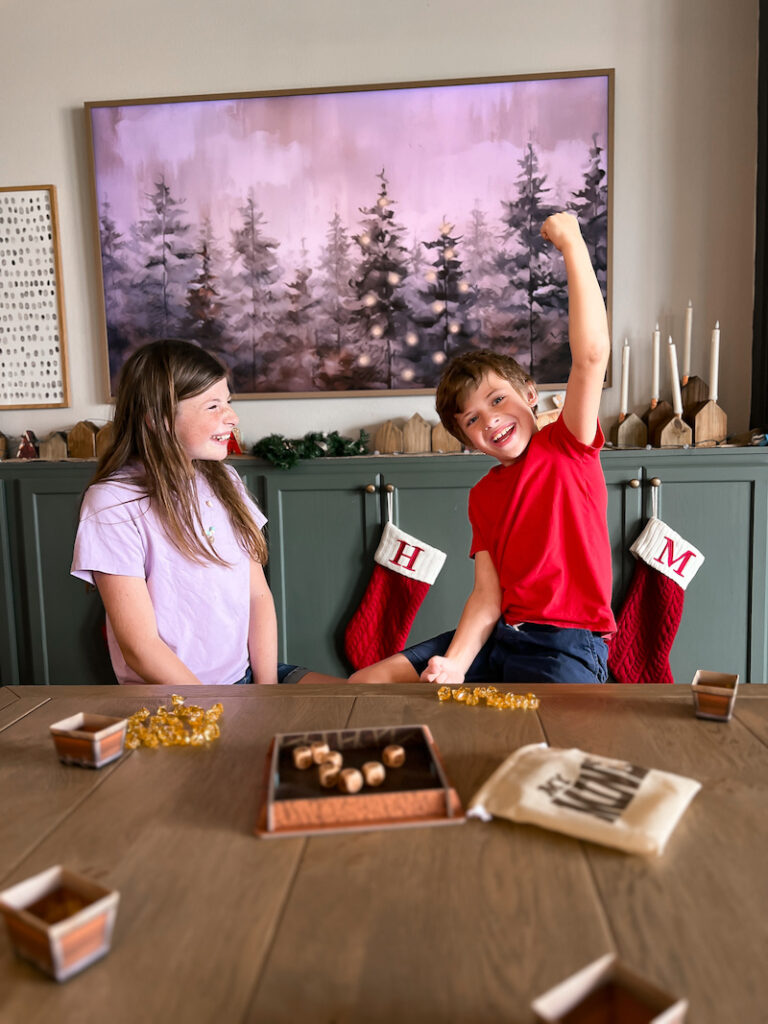
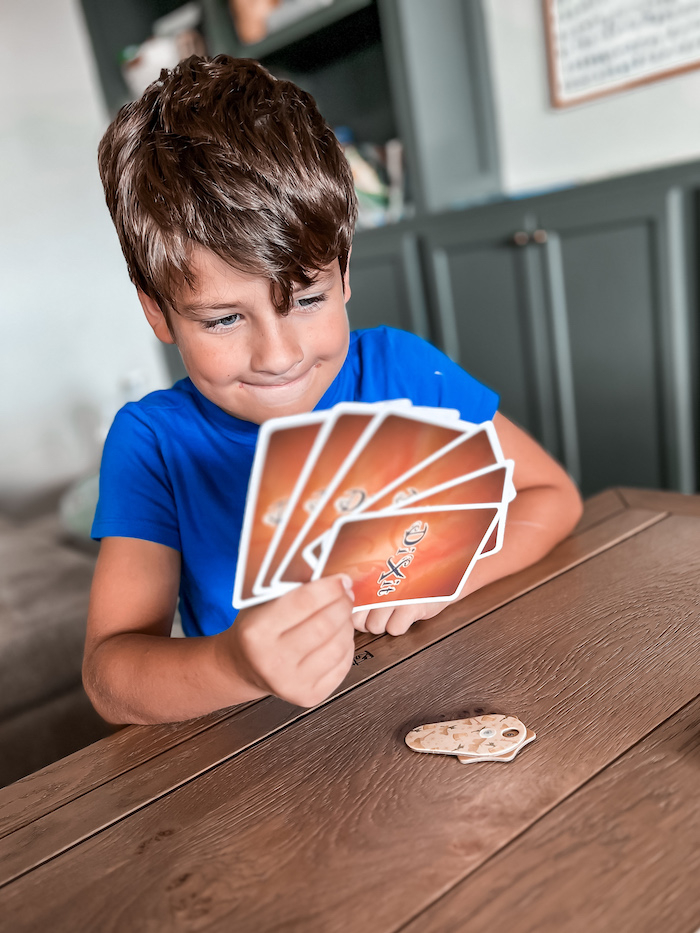
After the Game
6. Talk About What Went Well
Quickly touching base a little bit after the game is a great way to reinforce skills you want to see again. It doesn’t have to be an extensive talk. I try to keep it really short and sweet.
Here are some examples:
“I had a lot of fun playing with you,”
“Thanks for joining in the game with us — I enjoyed you being there.”
“What was your favorite part of the game?”
“Congratulating your brother on his win really meant a lot to him, thanks for doing that.”
This also allows you to touch on if a loss wasn’t handled well. Make sure your kids know it’s okay to be upset about not winning; disappointment and frustration aren’t bad emotions to feel. Let them know you understand how frustrating it can be, encourage them to try again, and make sure they know how happy you are getting to spend time with them.
7. Role Play What they Should Do Next Time.
When my child has a meltdown — often they are extra frustrated with themselves because they wish they would have made a different choice but feel like they can’t now. What I love most about being a parent is getting to offer that second chance to them so they can show me what they wish they would have done. It looks often like first validating their feelings, asking if they’d like to try again, and then acting out together what they should have done.
This may not help avoid a sore loser moment in the game, but it will provide the understanding that they need to feel from you and the assurance that they can do better next time.
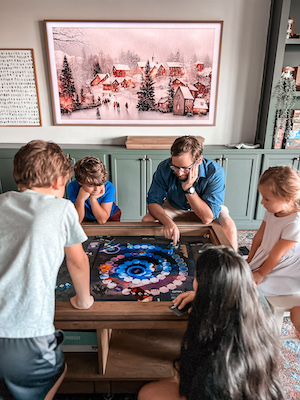

What About Cooperative Games?
Now you might have read all the above and find yourself wondering, “Why isn’t she recommending cooperative games???”
Cooperative games are games where you work together to beat the game. All players win and lose together, so they often are an easy recommendation for players who don’t like to lose.
There are a lot of great cooperative games and if you think that’s something that is really going to benefit your loved one who is struggling with losing, you can hop right to these posts all about our favorite cooperative games for kids and cooperative games for families to find one that will be perfect for your crew!
But I just want to make two points on cooperative games as they relate to sore loser issues.
1. The competitive game itself often isn’t the problem.
A cooperative game isn’t a magic fix for sore losing — it doesn’t erase the competitive spark that can lead to big emotions. The truth is, those tough reactions to losing usually come down to a mix of emotional regulation skills and a child’s internal sense of self.
When kids (or adults!) tie losing to thoughts like “I’m bad at this” or “I’m not smart enough,” it becomes less about the game and more about self-esteem. Cooperative games can help by softening the impact of a loss when it’s shared among players, but if someone really struggles with losing, they won’t automatically feel better just because everyone else lost too.
That’s why it’s important to still give kids chances to practice losing outright — with patience, empathy, and encouragement. Learning to lose gracefully builds resilience, confidence, and a healthy understanding that mistakes and setbacks don’t define their worth.
2. Cooperative Games Can Sometimes Lead to BIGGER Emotions
Let me be honest — our most memorable sore-loser moments have come from cooperative games. These games can easily turn into solo experiences with multiple spectators when one player naturally takes charge (a behavior often called alpha gaming).
When that happens, resentment can build toward the “leader,” or the opposite can occur — players may feel pressured not to make mistakes. If they mess up, it’s no longer just their loss, but the group’s. That’s a stressful dynamic for anyone, especially kids who already feel anxious about losing.
You’ve Got this!
If you’re reading this post, then it’s likely that you are struggling with this issue in one form or another in your family and are actively looking for ways to change it for the better. Know that we are cheering you on! With practice and gentle persistence, we know that you can help instill the positive sportsmanship skills you want to see in your home.

